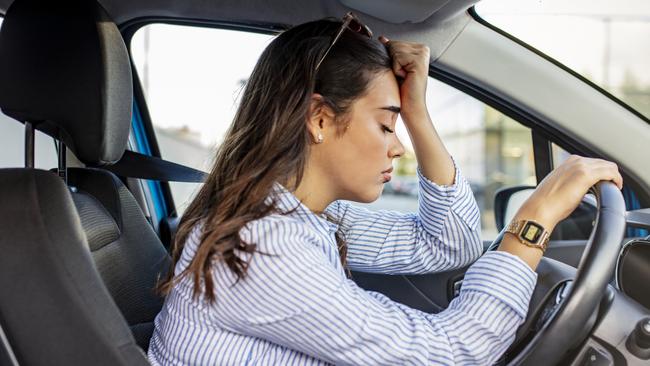Swinburne research into hangovers shows drivers don’t care they’re bad
Harrowing research has revealed driving while hungover may be as dangerous as getting behind the wheel when drunk — and this group may be more predisposed to bad hangovers than others.
VIC News
Don't miss out on the headlines from VIC News. Followed categories will be added to My News.
Driving while hungover may be as dangerous as getting behind the wheel when drunk.
But in a frightening twist, you’re not likely to care about your shoddy driving skills the day after a night on the grog.
New Australian research into the cause and impacts of hangovers also shows how sick you feel the day after drinking can be determined by your genes, with some people more genetically predisposed to bad hangovers than others.
The studies at Swinburne’s Centre for Human Psychopharmacology - conducted in collaboration with international experts - promises to change the way we think about driving after drinking.
“Research by some of my colleagues in the United Kingdom and the Netherlands . . . found that driving impairment is equivalent when hungover to when driving with a BAC above the legal driving limit,” Swinburne’s Dr Sarah Benson said.
One of the criteria for someone being classified as ‘having a hangover’, was that they had a zero, or very close to zero, blood alcohol (BAC) concentration, she said.
“Otherwise we would be measuring the impacts of residual alcohol and not of a hangover,” she said.

“When people are hungover, they are definitely blowing under the legal limit, but their driving is impaired as though they are above the legal limit.”
Swinburne was set to start its own hangover driving trials soon, she said.
It had already studied the effects of stress on hungover people, and found they really didn’t care how poorly they performed at tasks.
To study the hangover ‘care factor’, trial subjects were plied with alcohol at night and put through a fast, computerised, cognitive stress test next day, examining their memory, reaction times and basic maths skills.
“What we saw . . . is that they came in and already had poor mood and anxiety but when we got them to do the stress test, even though they performed worse than usual - and they knew they were performing worse - their mood and anxiety levels didn’t change . . . so (when hungover) you’ll underperform but you really won’t care about it basically,” Dr Benson said.
“Just doing a stress test would normally increase anxiety in people, but this doesn’t happen in people who are hungover.”

In addition to genetic makeup, reasons people could suffer worse hangovers than others included their built-up tolerance to alcohol, their body’s efficiency to metabolise it, the type of drink consumed, someone’s age, how much they ate and their sleep quality, she said.
Road safety chief at the TAC, Samantha Cockfield said impairment from alcohol could last for a long time after drinking had stopped.
“If we don’t feel like we are okay to drive, the chances are we aren’t,” she said.
“The length and quality of our sleep is also affected by how much we drink, which means we aren’t always ready to drive the next morning.”
MORE NEWS:

